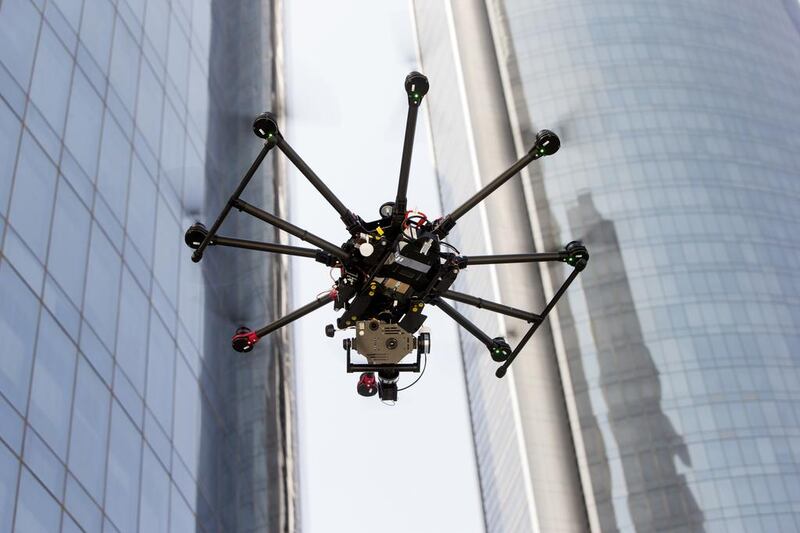Twice in the past two months, Dubai International Airport, one of the busiest in the world, has had to be shut down because of a drone incursion. These shutdowns are serious events, costing hundreds of millions of dirhams per hour, disrupting dozens of flights and thousands of passengers. And all because of a small drone that someone flew into the wrong place.
Small wonder then that Emirates airline has called for tougher penalties for those who enter restricted airspace. “The safety risk from unauthorised drone activity and disruption to customers and operations is unacceptable,” said Adel Al Redha, vice president of the airline.
Most customers would agree and many will find it surprising that no one has so far been arrested for the two latest incursions. As our report yesterday made clear, the law allows for up to three years in jail or a Dh100,000 fine, but it’s not known if this has ever been enforced.
That’s the dark side of drones. But there’s a much brighter side, too, as highlighted by another story this week of how the UAE is helping save lives in Rwanda. In a country where remote villages often don’t have the right stocks of blood products – and not ability to store various products over the long-term – a new project uses drones to deliver blood to remote hospitals.
These sorts of innovative uses for drones will only increase, as companies and individuals figure out better ways to use existing technology and develop future drones. That is an argument for allowing the use of drones across the UAE, as already happens, but with serious exceptions. There has to be a way to keep the benefits of drones, while ensuring that such serious offences as those that closed Dubai airport don’t happen again and, if they do, are punished appropriately.
The way forward is a mix of education and regulation – making owners and users aware of the laws and the dangers of unauthorised drone use, while at the same time enforcing existing laws and prosecuting those who flout them.
Taken together, this will ensure that drones find their appropriate place in businesses and with individuals, but that existing laws are obeyed. Drones are small machines with big uses and big dangers – with appropriate laws, we can maximise the first and minimise the second.





